More From the Los Angeles Times
Most Read in California
-
-
-
-
Oct. 3, 2024
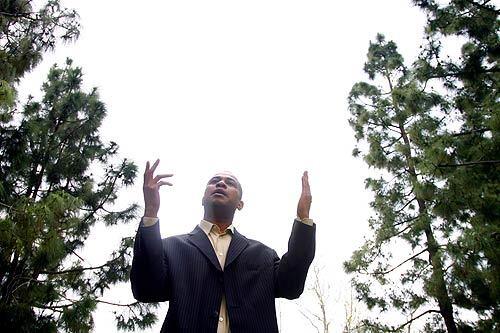
Randy Tran, an Amerasian whose father was a U.S. soldier and who was abandoned by his Vietnamese mother, lives in Hayward, Calif., and travels the country singing at restaurants and concert halls. “I feel like I belong nowhere,” he says. Recently Tran led a group to Washington to lobby for the Ameriasian Paternity Act, which would give automatic citizenship to Ameriasians born during the Vietnam and Korean wars. (Rick Loomis / Los Angeles Times)
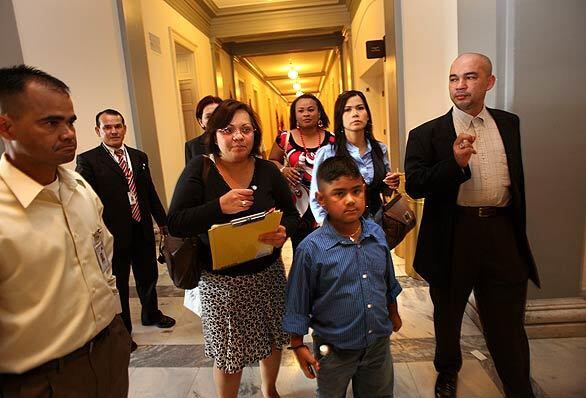
Vivian Preziose of Queens leads a group through the Capitol, where they’ve come to lobby for the Amerasian Paternity Act. (Carolyn Cole / Los Angeles Times)
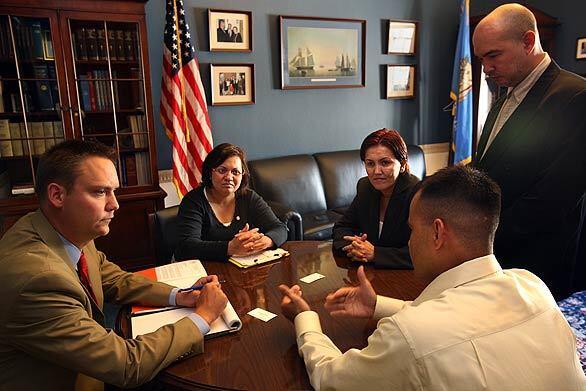
Preziose, second from left, and members of her group talk with John Rainbolt, left, a representative for Rep. John Sullivan (R-Okla.), about the Amerasian Paternity Act. In 1988, the Homecoming Act allowed the children of U.S. service members to immigrate to the U.S. But it did not guarantee citizenship. Many who arrived lacked English skills or family connections -- the program did not help them find their fathers -- and Amerasians were shunned by Vietnamese communities. (Carolyn Cole / Los Angeles Times)
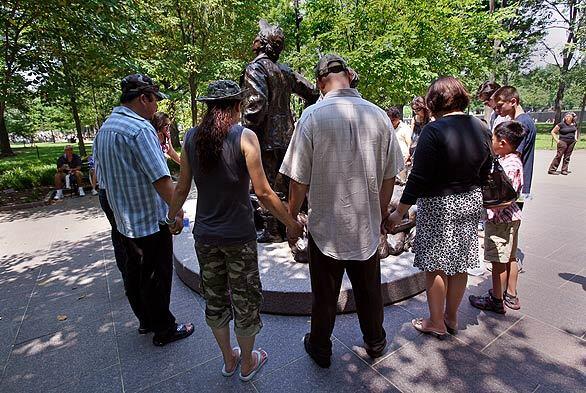
A group of Amerasians say a prayer at the Vietnam Women’s Memorial in Washington, D.C., during their visit. (Carolyn Cole / Los Angeles Times)
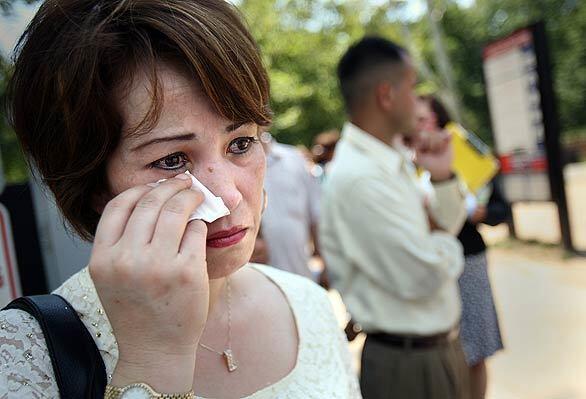
Amerasian Linda Tran of Oklahoma walks away from the Vietnam Veterans Memorial in Washington. She never met her father and later learned he had died of cancer. (Carolyn Cole / Los Angeles Times)
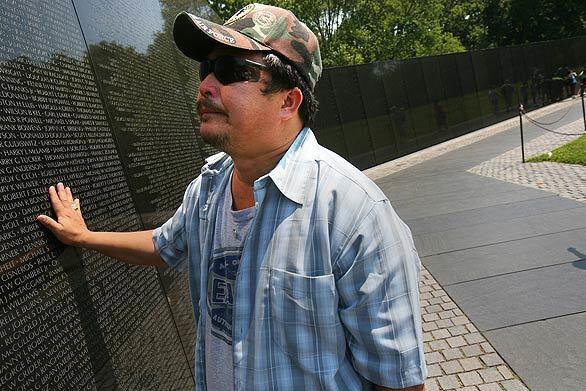
Huy Duc Nguyen, 43, of Dallas, came to the U.S. in 1981. He never met his father; his only clue about the man is that his name sounds something like “Sheffer.” (Carolyn Cole / Los Angeles Times)
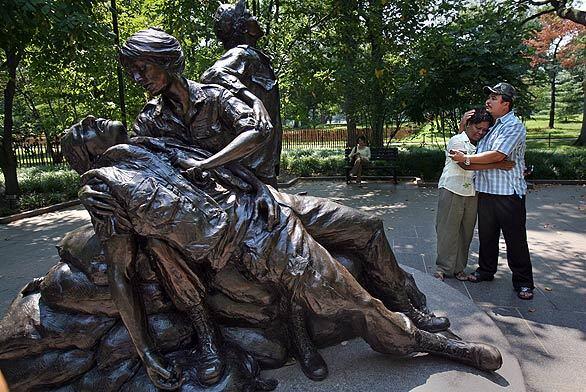
Nguyen hugs a friend at the women’s memorial. The group of 22 spent three days in July lobbying for the Amerasian Paternity Act in Washington. (Carolyn Cole / Los Angeles Times)
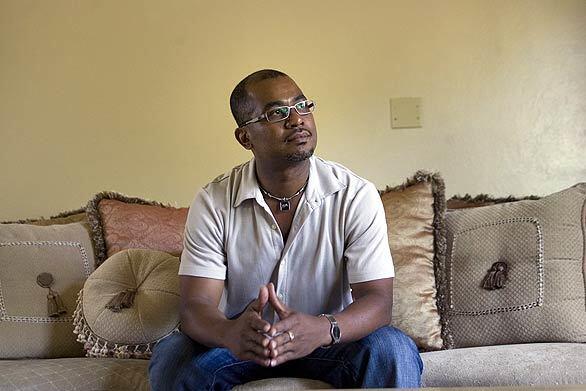
Randy Tran says he used to be angry with his Vietnamese mother for abandoning him, until he learned about the harsh conditions during the war and the stigma of bearing an American’s child out of wedlock. He once wrote a song called “After the War” that he performs to Vietnamese audiences. Many are moved to tears. (Randi Lynn Beach / For the Times)
Oct. 3, 2024